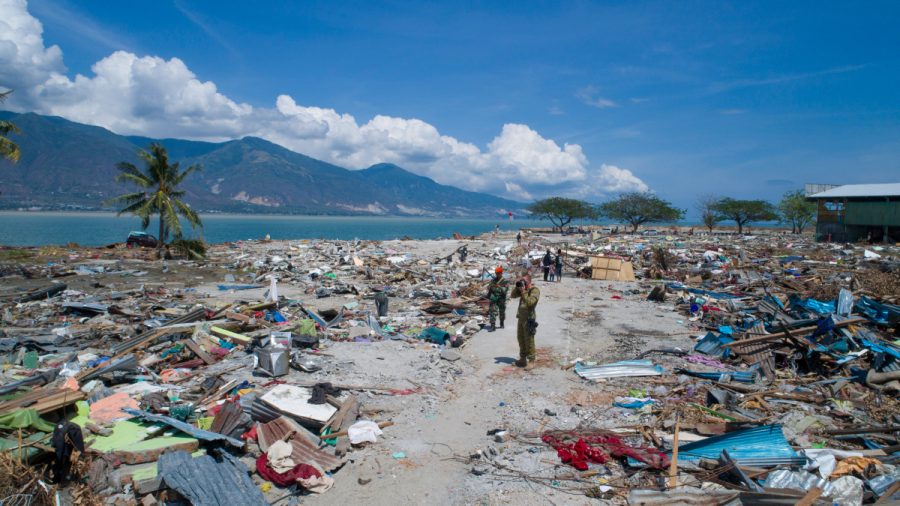Australia’s nuclear-weapons debate: shifting the focus
Posted By Albert Palazzo on September 13, 2019 @ 06:00

Australia’s national security community is once again in the midst of a debate on whether or not Australia should acquire nuclear weapons. This latest round was initiated by the publication of Hugh White’s new book, How to defend Australia [1], which includes a chapter on the possibility of Australia developing a nuclear capability.
Having a debate on the nation’s future security is a good thing, even a necessary one, because it recognises that a reconsideration of national security is needed as Australia navigates a more dangerous and problematic era. While for many it’s natural that nuclear weapons be included in such a discussion, it shouldn’t take too long to dismiss them.
There are two reasons why the discussion will be a brief one: the lack of wisdom in relying for security on weapons that can’t be used, and their irrelevance to Australia’s most pressing future security risk—climate change.
Every security thinker and military professional who supports Australia joining the nuclear club can do so only if they accept the following consequence: the result of a use of nuclear weapons would likely be the extermination of the human species, as well as many others. Some may counter that they’ve been used before and, except for the victims of Hiroshima and Nagasaki, humanity has gone on to enjoy the greatest period of prosperity that it has ever had. It’s easy to forget that the United States dropped only two bombs because it didn’t have more. Today, that’s not the case.
Anyone who authorises a nuclear attack against another nuclear-armed state is deluding themselves if they think escalation will not result. Some nuclear-weapons states field thousands of these devices, each more powerful than those used in 1945, and the employment of even a small percentage would still trigger an extinction-level event. Those who were lucky to survive the initial blasts would eventually expire in the ensuing nuclear winter.
It can be comforting to consider these weapons in the abstract, but once they’re created the consequences of their use becomes real. Defence thinkers need to factor in what such weapons can do; otherwise, the current debate is nothing more than a game.
The second reason for Australia to reject nuclear weapons is that they have no utility to address the most critical security risk facing Australia. White’s book doesn’t even give climate change a passing reference, and it has been largely absent from the current debate. Unfortunately, the discourse of security thinkers is dominated by analysis of the possibility and consequences of state-on-state conflict, with occasional mentions of non-state actors.
Nation-states are human constructs. They are part of the made environment. But what many commentators too often overlook is that the made environment exists within a natural environment. For thousands of years the natural world has been relatively benign, which has allowed humanity to propagate and construct the civilisation that we know today.
While defence thinkers may be comfortable talking about the shift in power that is underway in East Asia, they display less enthusiasm for discussing the security implications of climate change that is happening at the same time. Of the two, however, climate change is the far more significant threat, not just for Australia, but for all of humanity.
The question to ask in the current debate, therefore, is what part nuclear weapons can play in mitigating the security risks of climate change. My sense is that nuclear weapons have no utility in such a scenario. In fact, the opportunity costs of investing in a nuclear capability would consume resources that Australia could allocate to capabilities that are more relevant.
The best we can expect from the current episode of climate change is that the overall experience will be catastrophic for all of humanity. In part, this is a prediction, but it’s one based on the fact that all prior climate change events that humanity has undergone have been catastrophic. This one is likely to be the same, especially as efforts to minimise its effects have been slow to gain traction.
Past climate events suggest that many states will come under immense strain as climatic shifts disrupt their access to essential resources. Already-fragile states won’t be able to bear the additional pressure and intra-state conflicts will likely hasten their collapse. As societal support structures such as public health fail, epidemics and famines will break out and mass migrations will occur. These societies will have to make hard decisions if any of their people are to survive. Many of these fragile states sit within Australia’s primary area of interest and the Australian Defence Force may need to become involved.
Nuclear weapons will offer no assistance in such a situation. Rather, what the ADF will need is more medical, engineering and strategic and tactical lift, for example, and the greater numbers of personnel essential to separate warring factions of a collapsing society. These capabilities and the means to get them to where they are needed should be the priority, not nuclear weapons.
Defence thinkers can provide answers only to the questions they actually ask. The current debate has been robust and wide-ranging, but the proposals that have been made are derived from asking the wrong questions. A solution that includes the extermination of the species is not a useful one. Nor is one that offers little relevance to the main risk humanity faces. From the point of view of climate change and human survival, nuclear weapons are a non-starter. Instead, different questions need to be posed so that a more useful and relevant debate can be held.
Article printed from The Strategist: https://www.aspistrategist.org.au
URL to article: https://www.aspistrategist.org.au/australias-nuclear-weapons-debate-shifting-the-focus/
URLs in this post:
[1] How to defend Australia: https://www.blackincbooks.com.au/books/how-defend-australia
Click here to print.